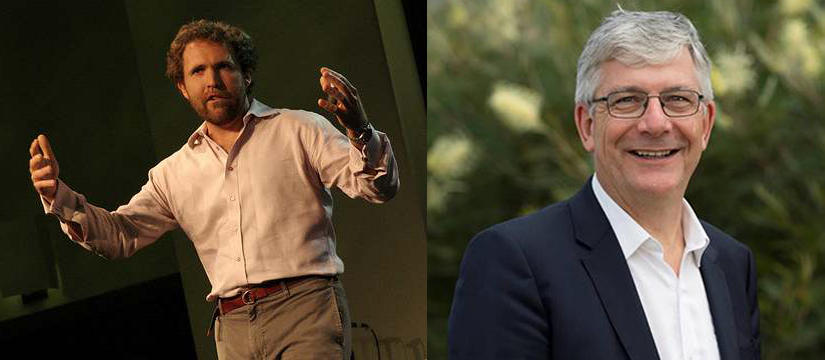Our Energy Future:
The Unrecognised Opportunity in Glasgow — In Two Acts
Part 2: Crushed Rocks
Dr Saul Griffith FRSN
including a conversation with
Dr Adi Paterson FRSN
See here for webinar registration and further details.
This year, from 1–12 November 2021, Glasgow, Scotland will host the 26th session of the Conference of the Parties (COP) to the UN Framework Convention on Climate Change. “Glasgow” is the current shorthand for this meeting — which may etch it into our consciousness for a generation as Rio de Janiero did in 1992 with the Rio 21 Principles.
Part 1: Context and Castles — 25 August 2021
Part 1 was presented on 25 August and in the event that you missed the presentation it is now available on our YouTube channel.
Part 2: Crushed Rocks — 15 September 2021
The second session will start with responses to questions and comments from the first session, and will allow people who did not see session 1 to get the background that will give context to the second talk.
Saul Griffith presents a future for our energy system and economy in the context of Glasgow. For Australia, understanding what we know (and why) about our energy economy allows us to think deeply about reimagining an energy economy without carbon dioxide and other emissions. The two sessions explore the Australian energy economy: domestic — “Our Castles” and global — “Our Crushed Rocks”. Using a new analysis of our emissions data and a cross-sectoral analysis, he will contextualise our machines (hardware in the economy) and climate targets (1.5 degrees, with and without negative emissions) to show why we now need nearly perfect execution of new solutions.
Dr Adi Paterson
Dr Adi Paterson has wide-ranging experience in energy policy, systems, technology, and innovation. He has had policy and management experience related to nuclear energy, hydrogen as an energy vector, energy in development settings, and battery innovation and industry potential. His current focus: energy sovereignty, security and low carbon energy options for established economies and the developing world, based on environmental sustainability to 2121. During his tenure as CEO of the Australian Nuclear Science and Technology Organisation (ANSTO), Australia joined the Generation-IV International Forum — a treaty-level nuclear organisation developing nuclear reactor designs to be available from 2035. Prior to joining ANSTO he was Chief Operating Officer of the Pebble-Bed Modular Reactor (PBMR) Company in South Africa, including responsibility for international outreach (primarily in the USA and Canada).
Saul and Adi will explore the export economy and the technologies that we don’t yet have, but which are predictably going to exist, to decarbonise the “hard to decarbonise” sectors such as steel, aluminium, cement, agriculture, forestry, paper, and pulp.


